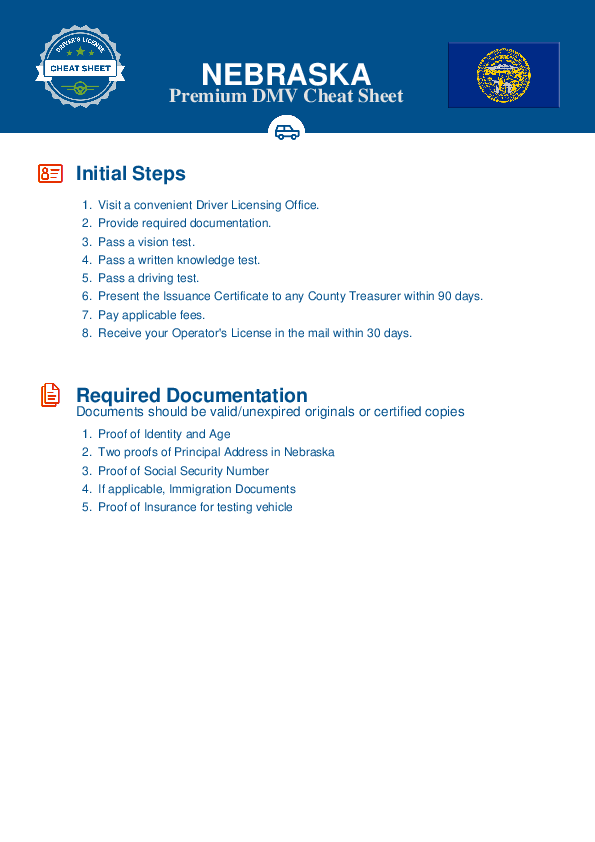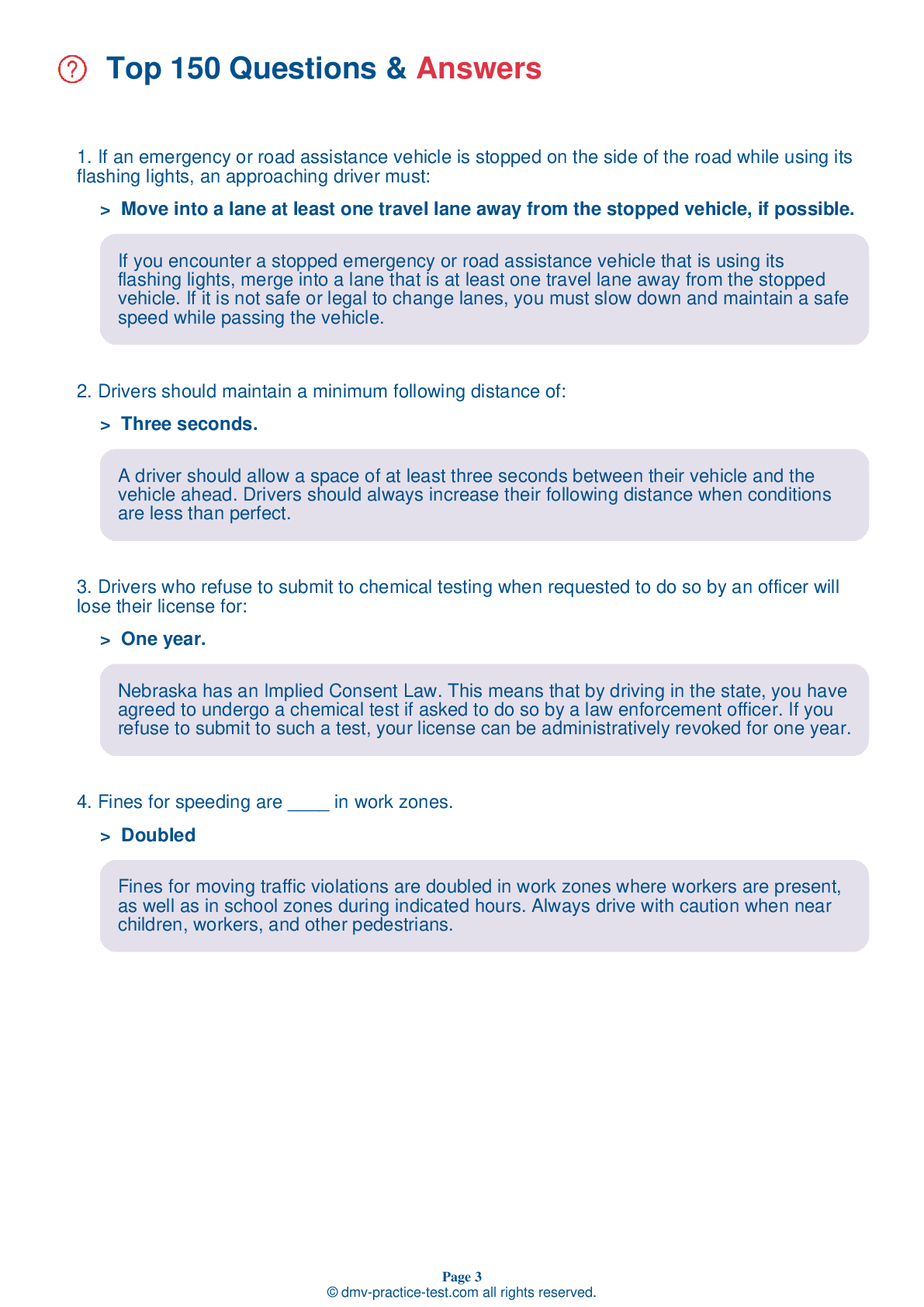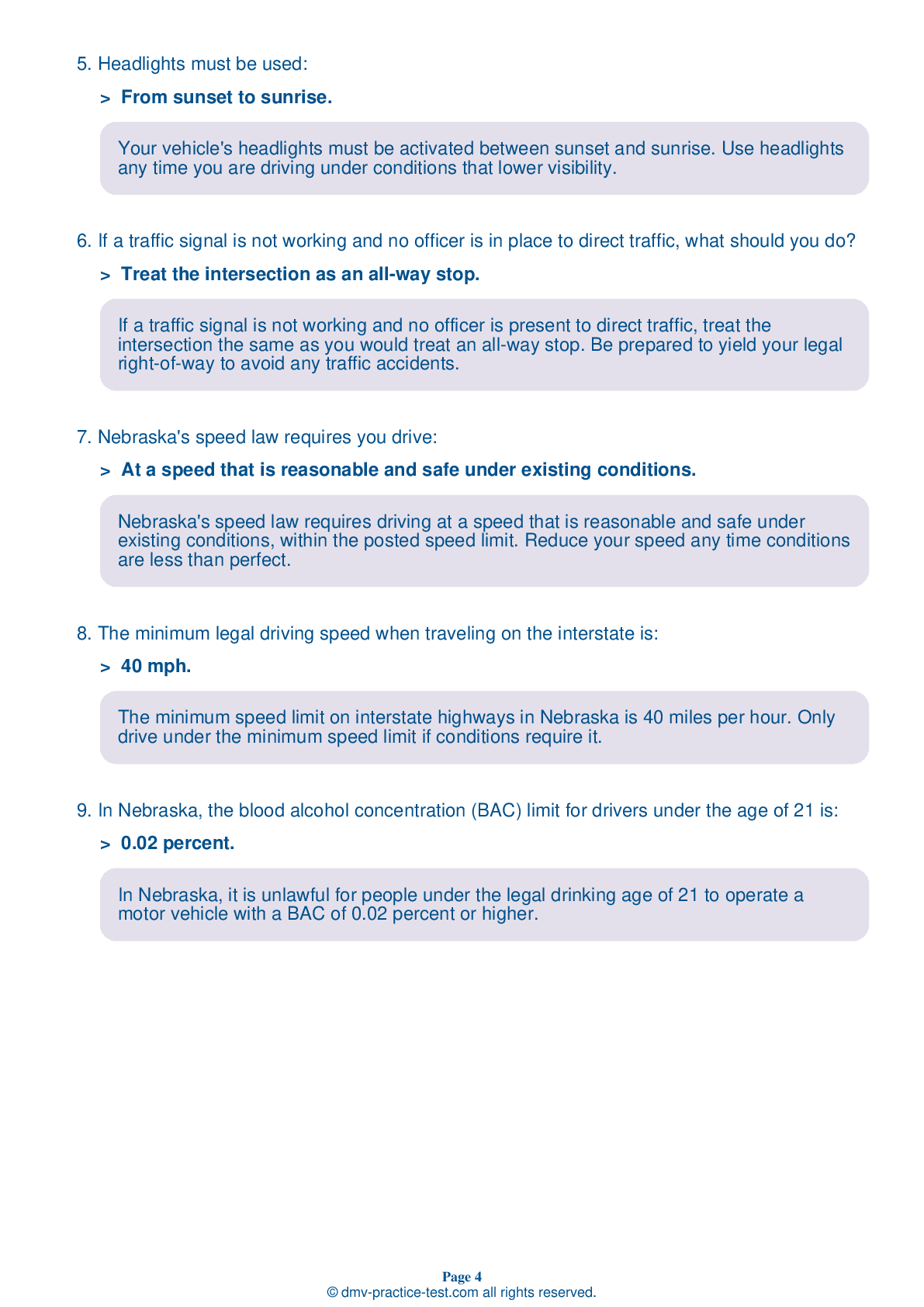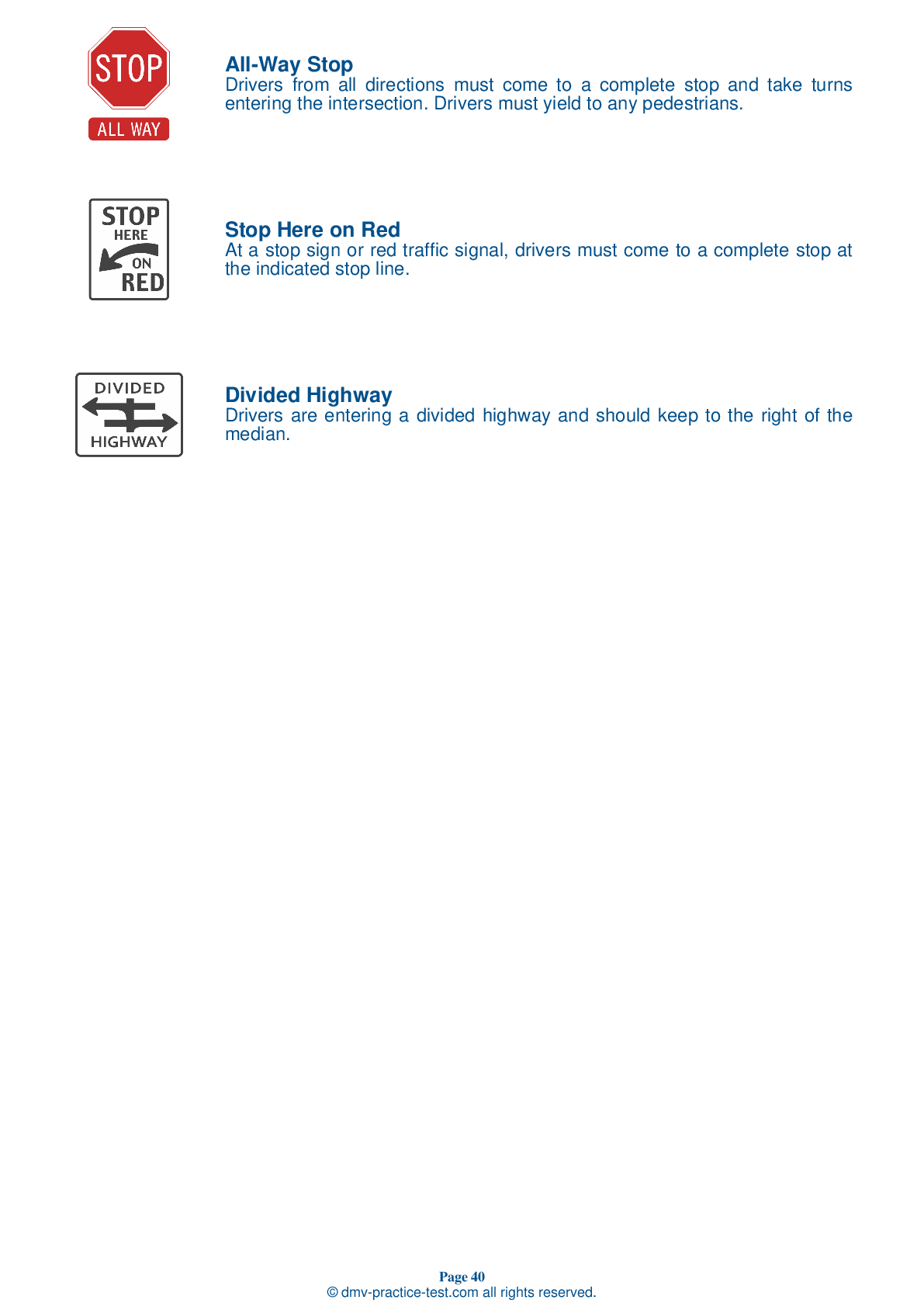FREE Nebraska DMV Practice Test #9
Take this FREE DMV Practice test (NE 2026) to check your qualification as a driver. To enhance your knowledge, download a DMV driver handbook, study theory, and practice for free on our website. Still worried about passing your test (driving license in Nebraska 2026)? Check our website for more sample tests, train as much as possible, and boost your grades!
1 . This road sign means:
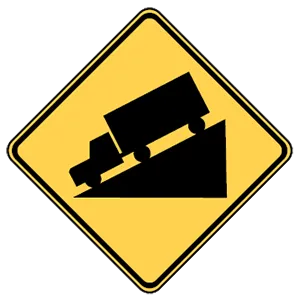
Warning signs provide notice to road users of a situation that might not be readily apparent and are usually yellow with black markings. This sign warns drivers of an upcoming steep hill. Drivers should adjust their speed accordingly to avoid collisions and brake damage.
2 . If there is a deep puddle on the road ahead, you should:
To prevent skidding on slippery surfaces, avoid especially slippery areas, such as ice patches, wet leaves, oil, or deep puddles. The safest surface for driving is a dry, solid surface.
3 . A person who drives much slower than the speed limit:
Driving more slowly than the flow of traffic can be hazardous. If you are on a two-lane, two-way road and driving so slowly that traffic is backing up behind you, you are required to pull off the road and let the other vehicles pass. Only drive significantly under the speed limit when conditions require it.
4 . If you encounter an aggressive driver, you should:
Drivers must respect and cooperate with all other road users and conform to specific rules in order to maintain order and to avoid crashes. When encountering an aggressive driver, it is safest to just get out of their way. Always avoid competing with other drivers.
5 . When driving in fog, you should use your:
If you must drive in foggy conditions, you should use your low beam headlights, as well as your fog lights, if your vehicle has them. High beams direct their light upwards, where it can bounce off the fog and into your eyes, reducing visibility even more.
6 . From top to bottom, the following is the proper order for traffic lights:
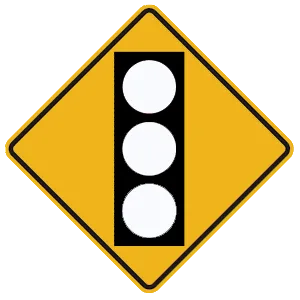
Warning signs are usually yellow with black markings. They alert you to conditions that are immediately ahead. This sign warns drivers about the presence of traffic signals at an intersection ahead.
7 . Traffic signals sometimes display arrows to control turns from specific lanes. A solid red arrow:
A solid red arrow in a traffic signal means the same thing as a circular red traffic light. When an arrow is red, traffic in the indicated lane must stop and may not turn in the direction that the arrow is pointing.
8 . When operating a motor vehicle, it is a secondary offense to use a handheld wireless communication device:
It is a secondary offense to use a handheld wireless communication device to read, type, or send written communication while operating a motor vehicle. Violation of this law will result in a fine ranging from $200 to $500.
See the exact questions that will be on the 2026 Nebraska DMV exam.
99.2% of people who use the cheat sheet pass the FIRST TIME
LT gives us an insight on how the cheat sheet provided her with all the study questions she needed before taking her test.
Joe initially studied with the handbook and failed his test, he eventually found us online, studied and pass his test the first time around.
